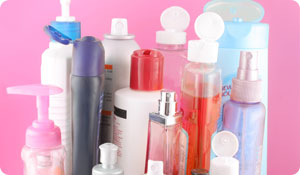
If your budget doesn't extend to $100 or more for skincare, you've probably tried or considered generic alternatives.
These over-the-counter and prescription formulas claim to be identical to their big-name siblings and often come in identical packaging. But will they yield the same results?
Any generic prescription drug—skincare or otherwise—has undergone extensive FDA (Food & Drug Administration) testing to ensure that it is the equivalent of the brand-name product. Additionally, the manufacturing techniques, labeling practices, and production regulation have to meet the same standards as the original product. These identical quality standards mean that you should experience the same results from a generic brand as you would from the brand-name formula.
The only drawback is that the newest formulas may not have a generic equivalent, since when drugs are first released, they are typically patent-protected and generic formulas can't be offered until that patent expires.
However, over-the-counter products are different. They are not regulated or tested the same way, since the FDA considers over-the-counter skincare products to be cosmetics. To the FDA, over-the-counter formulas are low-risk, hard to abuse, and don't need a doctor's expertise to administer. The FDA is, however, heavily involved in regulating the way that these products are labeled. Over-the-counter products have certain standards to ensure the ingredients, warnings, and instructions are clearly spelled out on the label. These standards apply to both brand name and generic products.
Because of the lessened regulation, consumers have to perform the research and comparison between brand name and generic skincare products. Don't be fooled by the packaging or shelf placement; the key is reading both labels.
First, take a look at the ingredient list for each product. Are the percentages of the active ingredients the same? If no percentages are listed, are they listed in the same order? Generic brands may skimp on the concentration of the key ingredients, or leave out some of the soothing ingredients that can help reduce skin irritation, especially if you have sensitive skin. Stronger formulas, especially in the case of acne medication, can be rough on skin. So you may want to consult a dermatologist to help steer you in the right direction.
The overall quality of over-the-counter generic skincare is getting better and better. The risk of it not working is going to put a much smaller dent in your wallet than the original formula. And if you are choosing generic, you know that the original was effective enough to last in the competitive marketplace, so it's probably well worth a try.
Sources:
Fda.gov: "Regulation of Non-Prescription Drug Products." U.S. Food and Drug Administration. Web. January 5, 2011. http://www.fda.gov/downloads/AboutFDA/CentersOffices/CDER/UCM148055.pdf
Health.uab.edu: "Generic Drugs." UAB Health System. Web. 2008. http://www.health.uab.edu/17716/





